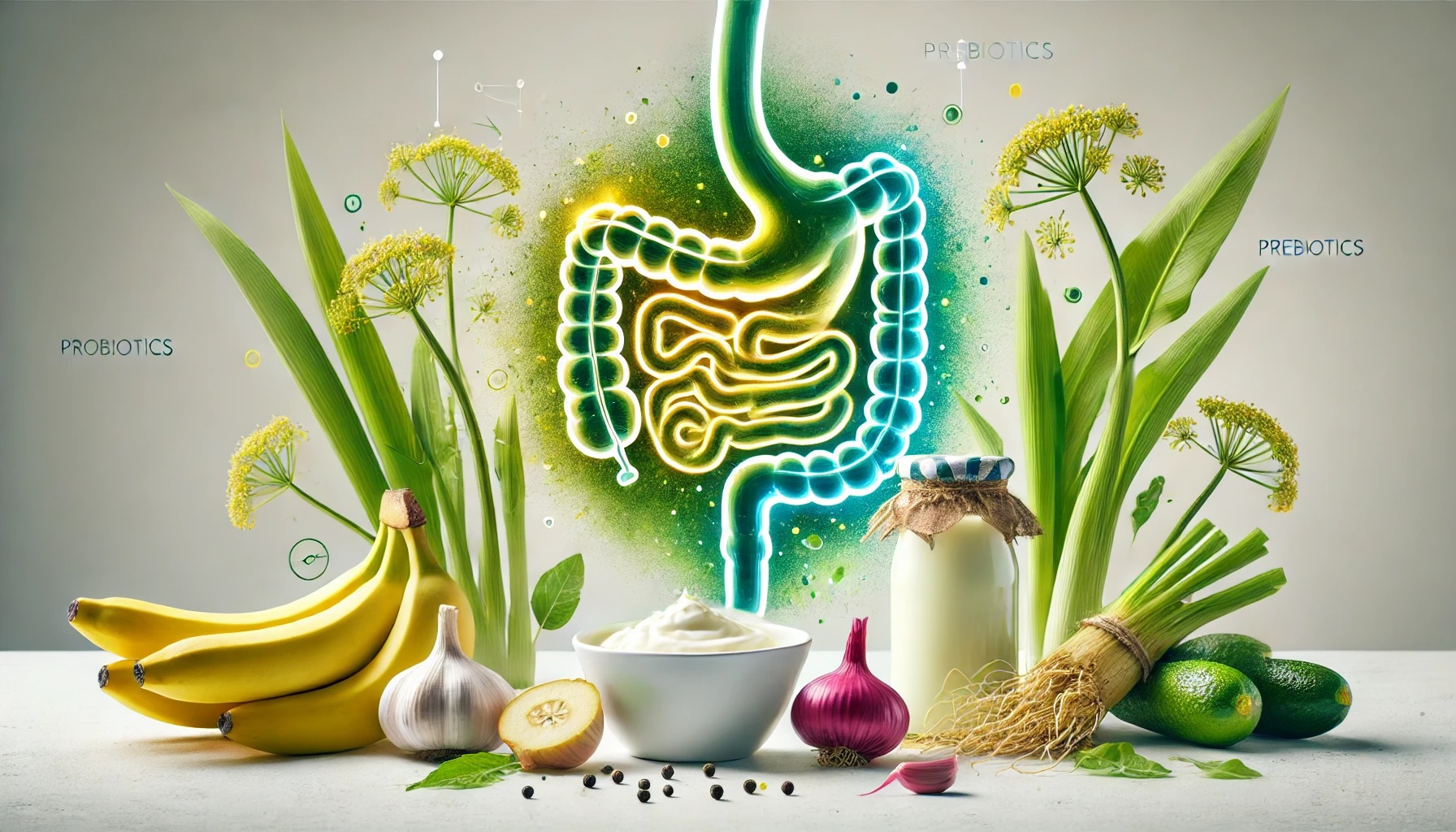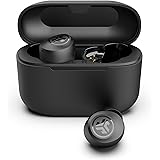In modern health research, the gut is often referred to as the “second brain.” It plays a critical role not only in digestion but also in immunity, mood regulation, and overall health. Probiotics and prebiotics are essential for maintaining gut health. This article explores their definitions, their contributions to gut and overall health, and how to optimize gut function through diet and supplements.
What Are Probiotics and Prebiotics?
Probiotics Defined
Probiotics are live microorganisms that provide health benefits when consumed in adequate amounts. They are often called “good bacteria” because they help balance the gut microbiota, improve digestion, and support the immune system.
• Common Types of Probiotics:
• Lactobacillus: Assists in breaking down lactose and reducing inflammation.
• Bifidobacterium: Supports nutrient absorption and promotes bowel regularity.
• Saccharomyces (yeast): Alleviates digestive disorders such as diarrhea.
Prebiotics Defined
Prebiotics are indigestible dietary fibers that serve as food for probiotics, enhancing their growth and activity. Prebiotics are found in various plant-based foods.
• Common Types of Prebiotics:
• Inulin: A fiber found in chicory root.
• Fructooligosaccharides (FOS): Present in fruits and vegetables like bananas and onions.
• Galactooligosaccharides (GOS): Found in dairy products.
Probiotics vs. Prebiotics
While probiotics are beneficial bacteria, prebiotics are the “food” that fuels these bacteria. Together, they work synergistically to promote gut health.
The Link Between Gut Health and Overall Wellness
The Importance of Gut Microbiota
The human gut contains trillions of microorganisms, collectively known as the gut microbiota. A balanced gut microbiota plays a vital role in:
• Digestion and Nutrient Absorption: Breaking down food and absorbing nutrients.
• Immune System Support: More than 70% of immune cells reside in the gut.
• Mental Health: The gut-brain axis connects the gut to the brain, influencing mood and cognitive functions.
Consequences of an Imbalanced Gut
When harmful bacteria outnumber beneficial ones, it can lead to:
• Digestive disorders like bloating, diarrhea, or irritable bowel syndrome (IBS).
• Metabolic diseases such as obesity and diabetes.
• Immune dysfunction, increasing the risk of allergies and autoimmune diseases.
• Mental health issues, including anxiety and depression.
How Probiotics Support Gut Health
1. Balancing Gut Microbiota
Probiotics inhibit the growth of harmful bacteria by:
• Producing lactic acid and short-chain fatty acids that lower gut pH.
• Competing with harmful bacteria for adhesion sites on the intestinal walls.
2. Improving Digestive Health
• Probiotics break down hard-to-digest components like lactose, alleviating symptoms of lactose intolerance.
• They regulate bowel movements, easing constipation and diarrhea.
3. Boosting Immunity
• Probiotics activate gut-associated immune cells, enhancing the body’s ability to fight infections.
• They reduce allergic reactions by modulating immune responses.
4. Enhancing Mental Health
Through the gut-brain axis, probiotics can reduce symptoms of anxiety and depression. Studies suggest strains like Bifidobacterium and Lactobacillus are particularly effective in improving mood.
The Role of Prebiotics in Gut Health
1. Feeding Beneficial Bacteria
Prebiotics fuel probiotics, enabling them to thrive and maintain a balanced gut microbiota.
2. Promoting Digestive Regularity
• Prebiotics add bulk to stool, encouraging healthy bowel movements and alleviating constipation.
• They improve the gut environment by reducing inflammation.
3. Enhancing Mineral Absorption
Prebiotics increase the absorption of essential minerals like calcium and magnesium, helping to prevent conditions such as osteoporosis.
4. Reducing Risk of Chronic Diseases
Regular consumption of prebiotics is linked to improved cholesterol levels and reduced risk of cardiovascular diseases.
Dietary Sources of Probiotics and Prebiotics
Probiotic-Rich Foods
• Yogurt: A rich source of live and active cultures like Lactobacillus.
• Kefir: A fermented milk drink with a diverse range of probiotics.
• Sauerkraut: Fermented cabbage high in Lactobacillus.
• Miso: A traditional Japanese fermented soybean paste.
Prebiotic-Rich Foods
• Chicory Root: High in inulin, a potent prebiotic.
• Bananas: Green bananas are particularly rich in resistant starch.
• Onions and Garlic: Contain both inulin and FOS.
• Whole Grains: Oats, brown rice, and whole wheat bread provide prebiotic fibers.
Probiotics and Prebiotics Supplements
When dietary intake is insufficient, supplements can help.
Tips for Choosing Supplements:
• Look for Multi-Strain Probiotics: Supplements containing a variety of Lactobacillus and Bifidobacterium strains.
• Check CFU Count: Ensure the product contains an adequate number of colony-forming units (CFUs).
• Select Prebiotics with Inulin or FOS: These ingredients enhance probiotic effectiveness.
• Choose Reputable Brands: Opt for third-party tested products.
The Synergistic Effect of Probiotics and Prebiotics
Combining probiotics and prebiotics enhances their benefits—a concept known as synbiotics. For example:
• Pair yogurt with oats or bananas for a gut-boosting breakfast.
• Choose supplements that contain both probiotics and prebiotics for maximum impact.
Potential Side Effects of Probiotics and Prebiotics
Although generally safe, some people may experience:
• Temporary Bloating or Gas: While the gut adjusts to increased beneficial bacteria.
• Caution for Immunocompromised Individuals: Consult a doctor before using supplements if you have a weakened immune system.
The Future of Probiotics and Prebiotics
Emerging research is exploring new applications:
• Personalized Medicine: Tailoring probiotic regimens based on an individual’s gut microbiota.
• Novel Prebiotics: Developing more effective and diverse prebiotic options.
• Chronic Disease Prevention: Investigating the role of probiotics in preventing obesity, diabetes, and other chronic conditions.
Conclusion: Start Supporting Your Gut Health Today
Probiotics and prebiotics are powerful tools for optimizing gut health. By incorporating probiotic-rich foods, prebiotic fibers, or supplements into your daily routine, you can achieve better digestion, stronger immunity, and improved overall health.
Take the first step today by including a serving of yogurt or fiber-rich vegetables in your meals. Your gut—and your entire body—will thank you for it.



















